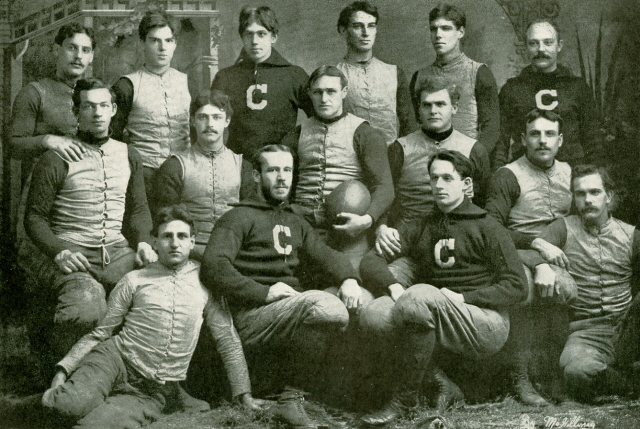
Sports are often used as metaphors for business. We often work in “teams” and construct “game plans.” If we succeed, we hit a “home run.” If we lose, we “strike out.” “Punting” means giving up.
The language of sports is something most of us understand. Most games have two easily identifiable teams, and simple rules (perhaps with the exception of Cricket). The central operating rule in sports is always one of fairness.
If doing business is like a game, we don’t want one team to have an unfair advantage. No team should have to work consistently against the wind or play into the sun, which is why most games require teams to switch sides at least once during a match.
It’s not surprising, therefore, to see the phrase “level playing field” being applied to author-pays open access (OA) publishing and as a justification for the creation of author publication funds.
BioMed Central, one of the largest commercial open access publishers, has been running workshops to help institutions set up these publishing funds. From their website:
…institutional collaborations between librarians and funding agencies can sit alongside the library budget to help ensure a ‘level playing field’ allowing an author to choose the right journal for their research, rather than finding themselves forced to publish in a subscription-based journal because that is the only model that their institution provides funding for.
Shortly under this paragraph is a quote from Stephen Pinfield, the Chief Information Officer at the University of Nottingham, repeating the playing field argument almost verbatim:
Setting up a central fund to pay open access publication charges at the University was seen as a significant way of removing barriers for researchers to publishing in open access journals. It was an important step forward in creating a level playing field within the institution for open access alongside other forms of publishing.
Stuart Shieber, Harvard professor of computer science, and director of the Harvard Office for Scholarly Communication used the level playing field metaphor in a presentation to the Cornell University Faculty Senate this spring, encouraging the library to establish an OA author publishing fund. In an interview last spring for Library Journal, he uses the same argument:
To put OA and subscription journals on a “level playing field,” he suggests, “you’d want to underwrite OA journals just as you do subscription journals.”
Okay, you say, I’ve made my point, but why do I see the playing field metaphor so problematic?
Because it’s missing an important team.
People wielding the level playing field metaphor seem to assume there are only two teams: the author-pays OA team and the reader-pays team. Since the reader-pays team often receives its sponsorship from institutions (who underwrite most of their costs), that leaves the author-pays team without a solid source of funding. Sure, authors can sponsor themselves (or rely on their grants), but that doesn’t seem to put the author-pays team on equal footing. In order to compete on a level playing field, they need sponsorship, and if they cannot get it by selling “institutional memberships,” they will try to get resources in the same way that the reader-pays team gets it: through a dedicated budget line. Only then is the system fair.
Or is it? By focusing on the author-pays and the reader-pays teams, we ignore a third team: publishers who rely on page charges from authors. This group of mostly non-profit learned society and association publishers relies on this source of author payments to keep subscription costs down for libraries and their readers.
Cover all open-access publication charges and, all of a sudden, we put these publishers at a distinct disadvantage.
In creating a level playing field between subscription-access and open-access journals, we will create a playing field that pits commercial publishers against non-profit publishers and gives the commercial publishes a great advantage over their non-profit rivals. When the game is over, we will be left with just the commercial players standing.
Is that the future we wish to create for ourselves?
If libraries are willing to cover open-access publishing charges, they should be willing to support page charges. Only then can we maintain a fair and level playing field.
Discussion
4 Thoughts on "Open Access on a “Level Playing Field”"
Phil, You spotted an interesting convergence of phrase among OA publishing advocates and are right to question it. However, your point in response isn’t quite the right one. Open access is about levelling the playing field for access rather than publishing.
Steve
Steve, I see your point, but the creation of these author publication funds is all about publishing. If the argument were merely about access, librarians would focus their attention on providing alternate free access routes to the literature, like self-archiving.
The creation of author OA publication funds is about showing preference for one type of publishing over another, and as I tried to argue, it will have unintended consequences. It will put those publishers who have done an excellent job containing costs at a distinct disadvantage and favor commercial publishing entities.
I’m not sure this is the future librarians sought when they started equating “crisis in scholarly communication” with reduced purchasing power.
![Reblog this post [with Zemanta]](http://img.zemanta.com/reblog_e.png?x-id=aaf98da1-91ab-4cec-84f0-f301df8db334)


